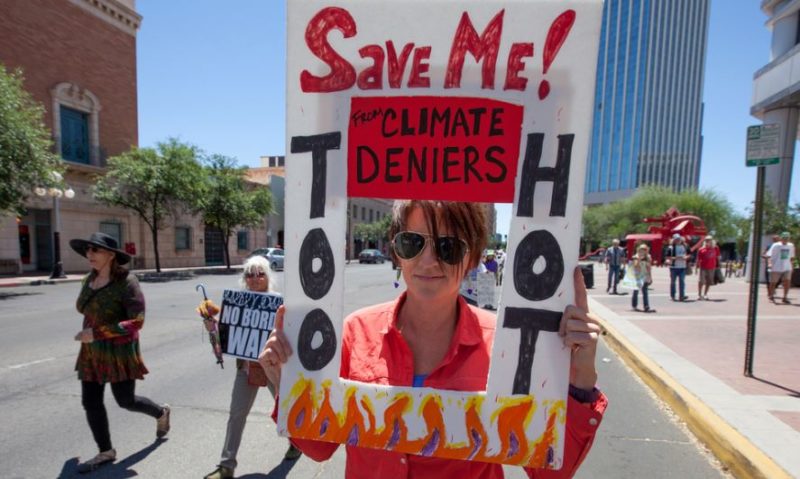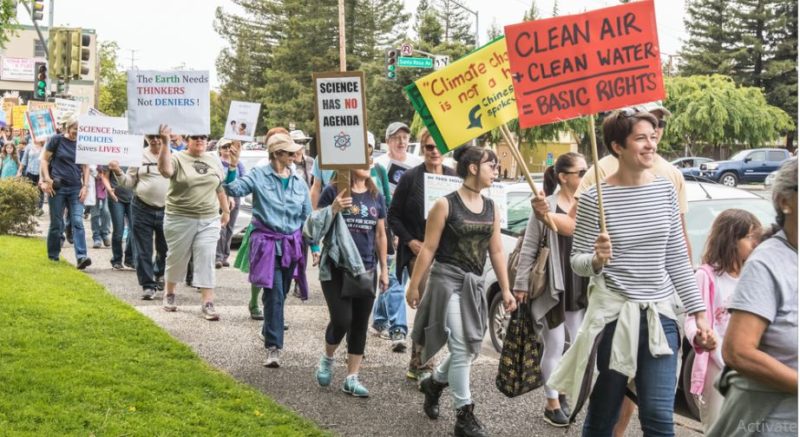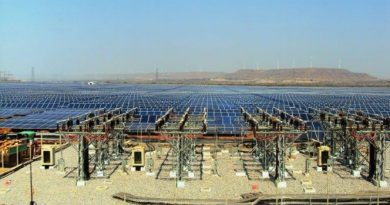The oily and the earnest. Climate change continues to divide at COP24
 How hot before better sense dawns?
How hot before better sense dawns?
Events of the past two years have increasingly made it clear that tough decisions on climate change are becoming a tough sell for countries. While this was understandable for developing countries like China, India and the rest, the perplexing, and perhaps unexpected resistance in the developed world has been the most surprising bit. Starting with the US, which, ever since the Trump presidency started, has been on a tearing bid to actively resist, if not undermine the claim of climate change itself, to Russia, always a suspect when it come to its commitment, thanks to its heavy dependence on oil exports, as well as the fond notion that it could actually benefit from global warming as ice melts to open up shorter routes by sea and even more grasslands for cultivation.
The usual suspects, Saudi Arabia, Turkey and other smaller oil exporters were simply predictably resistant, as these countries have a long record of never being first first movers, or taking the well being of broader geographies into account when taking a call on major decisions.

The worrying part is the increasing resistance building up in countries that have effectively ‘signed up’ on the ‘good’ side, to fight climate change. The fuel tax riots in France, the failure in Australia to move ahead on their Paris climate goals and even the brexit poll result in the UK, which, at one level was also a protest against change that was considered too much too soon. These were developed countries that were supposed to be at the vanguard of getting a buy in fro the developed world, even as emerging and massive contributors like India and China also worked to do better than what they had promised at the Paris accord. Even Germany has pulled back, going back on its promise to reduce emissions by 40% over its 1990 levels by 2020. In fact, the European continent, while making all the right noises, has fallen surprisingly behind on real action , as the reality of resentment in a middle class that has seen stagnating wages for almost a decade hits home.
For India, there are some tough lessons coming up, assuming the climate change predictions hold true. Keep in mind that some of the impending changes could take root as early as 2030 for the world. For one, India and China will both need to take unilateral action to show that they remain committed to meet or exceed on their commitments. China in particular should do much more, as overall income levels in that country rise to a ‘middling’ level.
On fossil fuels, poor Indians have shown far greater fortitude than Europeans or Americans in paying high rates of taxes on fuels. So much so, that the taxes have become a moral hazard in themselves, thanks to their high contributions to the exchequer. The result is, even as the government tries to ‘manage’ the pain of high taxes, there have been very limited efforts made to reduce actual consumption. Improving energy efficiency to a level consumption itself can be capped at say 2020 levels will be a worthwhile target. Keep in mind that most of the increase in global demand for fuels is predicated on rising consumption in India and China.
Issues like water availability, waste management and more, which, while thankfully not completely linked to climate change but are still in need of a tackling on a war footing, should continue to get the focus they deserve. Both impacted by climate change and in some case, contributing to it, these issues are easier to go for as results are also visible faster, both in terms of a cleaner, healthier environment. This is also the area where there is hope yet that even as national leadership prefers to act dumb, city and state level leadership in democratic nations will step up. Just last week, the US added the 100th city in that country that pledged to go completely renewable for instance.
Consumer education is assuming critical, in an era of fake news and sillier terms. Be it ‘clean coal’, or ‘clean gas’, fossil fuels need to be recognised for what they are, yesterday’s technology with a key role in the present, and a future that is the shorter, the better. Corporate polluters, that account for a lion’s share of the overall pollution, can certainly be targeted with better laws, or simply better implementation of existing laws, as is the case in India. A building consumer awareness among millennials of corporate purpose over functionality is a welcome sign of hope.
Fuel taxes need to go towards where they can make an impact . That would be bigger, cheaper public transport networks on a huge scale, to drive down wasteful fuel use on personal vehicles.
So is the COP24 going to be a cop out? Not necessarily? After all, it is becoming increasingly obvious that even as the Paris Accord pledges, based on voluntary targets could only drive so much action, some of the biggest changes in the past three years have happened with the support of market dynamics. Solar power had its biggest ever year in 2017, and Wind Power will do likewise next year possibly. The news on storage solutions has been promising, with both the reality of higher investments and major tech breakthroughs looking imminent. The believers need to do what is right for them, and hope it will be enough for the world too.




